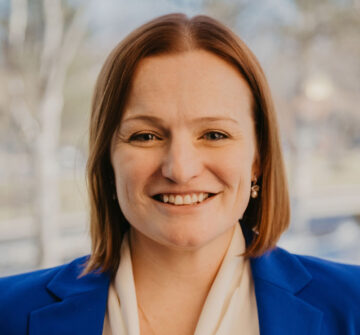MLSC’s Accelerating Coronavirus Testing Solutions program supports alternatives to current testing stopgaps, broadens access and availability of testing, and provides further validation of tests already available
Today, the Baker-Polito Administration announced that more than $1.5 million has been awarded to four projects that seek to increase testing capacity and provide solutions for coronavirus testing. The funding is through the Accelerating Coronavirus Testing Solutions (A.C.T.S.) Program, designed and administered by the Massachusetts Life Sciences Center, which supports projects focused on two core areas: accelerating the development of at-home or point-of-care testing methods that are simpler and faster, and new and innovative solutions that address existing supply chain bottlenecks. Among the four initial A.C.T.S. awardees are two companies: Framingham-based Kephera Diagnostics and Wellesley-based Virex Health; and two research hospitals: Beth Israel Deaconess Medical Center and Brigham and Women’s Hospital.
“We are committed to continuing to find ways to expand testing innovations and solutions as we continue to fight COVID-19,” said Governor Charlie Baker. “I applaud the efforts of these companies and institutions and I look forward to adding new and innovative solutions and continuing to work together to combat the pandemic.
“These investments represent the robustness of Massachusetts’ life sciences ecosystem in action, demonstrating our Commonwealth’s ability to lead the way in bringing health care innovations to patients,” said Lt. Governor Karyn Polito. “We need multiple tools in this fight against COVID-19 and remain committed to providing resources to expand access and capacity for testing, which remains a foundational piece of safely reopening the Massachusetts economy.”
The MLSC launched a Request for Proposals for A.C.T.S. this past October, open to for-profit companies and not-for-profit institutions submitting proposals that directly address the critical, near-term impact through innovative solutions that would support the process of safely reopening the Massachusetts economy. The MLSC brought together an external advisory panel of experts from academia and industry, including entrepreneurs, clinicians, scientists, clinical diagnostic lab managers, and public health experts, to assist in reviewing the proposals.
“As we work together to overcome the challenges this pandemic has created, we know that returning to everyday activities as safely as possible is tied to our ability to identify infected individuals, and that is only done via testing,” said Massachusetts Housing & Economic Development Secretary Mike Kennealy, who serves as Co-Chair of the MLSC Board of Directors. “We are excited about the impact these four efforts are bringing to the table in accelerating coronavirus testing solutions with a particular focus on making it easier and quicker to perform tests that can be done by patients outside of a traditional health care setting.”
“These innovative initiatives and the A.C.T.S. program itself underscore the importance of this Administration’s historic investment in the life sciences, from its top research universities and academic medical centers, STEM education, R&D infrastructure, talent, and life science companies,” said Secretary for Administration and Finance Michael J. Heffernan, who serves as Co-Chair of the MLSC Board of Directors. “There are many lessons to be learned from the current pandemic, but we remain determined our support for Massachusetts’ research and development capabilities and innovation infrastructure to accelerate the development of improved testing capabilities in the fight against COVID-19.”
“While there remains many unknowns yet to be fully explored, as we work in the present and look to the future, we do know testing will be vital to ensuring continued protection from COVID-19,” said MLSC President and CEO Kenneth Turner. “The mission of the MLSC remains more important than ever. We will continue to support novel innovations in the battle against this deadly virus, which matches the ongoing work of the MLSC to support the life sciences ecosystem and expand the capabilities of Massachusetts companies and research institutions.”
While Massachusetts has had a number of successes in supporting initial manufacturing needs through the Manufacturing Emergency Response Team (M-ERT), which included PPE and materials for PCR testing, as the pandemic evolved bottle necks in testing modalities became apparent. This program seeks to identify innovative solutions that can expand the breadth and depth of testing occurring in the Commonwealth. Increasing the number and accessibility of testing methods can provide new options and opportunities to testing centers, as well as alleviate certain costs at testing sites for equipment related to administering and processing tests. Novel testing modalities identified have the ability to provide alternatives to current testing stopgaps, expand the number of settings tests can be administered, and provide further validation of tests already available.
“Massachusetts has cultivated an environment where the life sciences can thrive,” said House Speaker Ronald Mariano. “By funding critical research into accelerated coronavirus testing, Massachusetts is leveraging the expertise of our world-class research institutions for the benefit of all our residents and for a strong recovery from the pandemic.”
“Massachusetts’ innovative life sciences community, long a source of innovation and economic strength in our Commonwealth, is playing a pivotal role in saving lives during this global pandemic” said Senate President Karen E. Spilka. “This critical initiative will use the unparalleled expertise of Framingham’s Kephera Diagnostics and three other recipients to rapidly develop additional COVID-19 testing strategies.”
| Awardee | Project Description | Funding |
|---|---|---|
| Beth Israel Deaconess Medical Center | Establish performance and optimize use of SARS-CoV-2 antigen tests in comparison to quantitative PCR and infectivity measures to inform optimal use of tests | $230,652 |
| Brigham and Women’s Hospital | Systematic evaluation of the accuracy of rapid antigen tests for diagnosis of asymptomatic SARS-CoV-2 carriers and their transmissibility potential through contact-tracing | $404,035 |
| Kephera Diagnostics | Development of a rapid antigen test intended for point of care diagnosis of COVID-19 from nasal/nasopharyngeal swab samples in clinical, nonmedical facilities, schools, municipal locations, and even homes | $417,074 |
| Virex Health | Accelerate development of its low-cost, rapid point of care diagnostic that utilizes a glucometer and novel glucometer-based test strip | $510,000 |
“COVID-19 antigen tests offer the opportunity to significantly and economically expand our testing capacity,” said James E. Kirby, MD, Medical Director of Clinical Microbiology at Beth Israel Deaconess Medical Center. “Our team at Beth Israel Deaconess Medical Center and the Harvard School of Public Health looks forward to establishing how to best use these tests in supporting our Commonwealth.”
“The Brigham and Mass General team will test the performance of rapid antigen tests in community surveillance efforts, which target asymptomatic or mildly symptomatic individuals,” said Dr. Sara Suliman, Instructor in Medicine, Immunobiologist at Brigham and Women’s Hospital. “We will benchmark the test accuracy against the molecular testing performed through the state’s Stop the Spread testing site in Holyoke. We are working closely with the Holyoke board of health, the Department of Public Health, as well as epidemiologists and implementation scientists. The eventual goal will be to implement these rapid tests to replace the more complex molecular tests for both regular screening and contact-tracing. We hope that this will make testing more affordable and accessible, especially in underserved communities in Massachusetts.”
“We are thrilled to have been selected by the MLSC for an award under the ACTS program, and grateful for the funding that will allow us to bring our COVID-19 rapid test through the final stages of development and regulatory review to commercial readiness,” said Dr. Andrew Levin, Kephera’s founder and CEO. “This project would not have been possible without the great network of collaborations with other companies and medical institutions that we have established here in Massachusetts.”
“We are grateful to the Massachusetts Life Sciences Center for supporting Virex,” said Mark Grinstaff, Virex Co-Founder and Boston University Professor. “This funding will enable prototype development of an easy-to-use, low-cost, rapid response point of care test for SARS-CoV-2 based on a novel electrochemical amplification technology. Testing is a key pillar of disease containment in the COVID pandemic. Virex’s goal is to enable widespread testing in all settings of daily life – homes, workplaces, schools, public spaces – in Massachusetts, across the United States and globally.”
Applicants were required to provide solutions that improve testing modalities and provide innovative solutions to areas that hinder the ability to quickly and effectively combat and contain the COVID-19 pandemic. Proposals were evaluated based on an applicant’s ability to: address and execute in a defined priority area; time to patient and/or implementation success, ability to leverage additional resources (e.g. funding, supplies, equipment) of the Massachusetts life sciences industry cluster; probability of scaling in Massachusetts; and potential to drive economic development and contribute to larger ecosystem in the Commonwealth.
The MLSC has been proud to be part of the Commonwealth’s ongoing effort to respond to the COVID-19 outbreak, including contributing funding and resources to the M-ERT and the Massachusetts Consortium on Pathogen Readiness. These recent contributions are in addition to the Center’s continued administration of various programs and other initiatives to support the life sciences sector. At the onset of the COVID-19 pandemic, the MLSC’s Board of Directors authorized an expenditure of $5 million from the Center’s Investment Fund and $5 million from its Capital Fund to support academic and/ or industry partners engaged in responding to the imminent public health threat. While the MLSC capitalized the A.C.T.S. program with $3.6 million, the MLSC is prepared to deploy additional funds to support A.C.T.S. and other efforts as part of the Commonwealth’s broader response.



